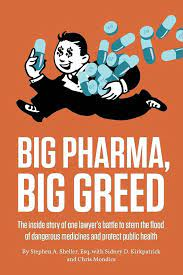

Why are big Pharma companies paying billions of dollars to take over in some cases small companies that have just one drug in their pipeline? The answer is simple, drug companies want to maximize the value of each drug in their portfolio for as long as possible until the patent runs out. But at some point those patents face a cliff. The competition is waiting to rush in and make generic drugs to treat the same thing. So what can drug companies do to find the next blockbuster drug?
They can try to build it in-house or buy the companies that hold the promise of the next big drug. But Big Pharma has generally faced pressure from its investors to cut its own RND D spending. That leaves Big Pharma with a decision to make, do they risk buying a company that has probably never even brought a drug to market or do they wait? The problem with waiting is one of your competitors may come and buy that company. That is why over the last five years, we have seen Big Pharma making very big bets. In 2015. AB V won a three-way bidding war to pay 21 billion dollars to buy pharmacyclics, a cancer drug maker that makes literally one drug.
There was pfizer's 14 billion dollars takeover of Motivation in 2016. Also in 2016. ABI agreed to pay 5.8 billion dollars to buy stemcentrics. This frenzy of deal makingking led investors to start wondering whether Big Pharma was paying too much and that is why the level of deal activity dropped in 2017 and for a lot of 2018. But then things started to pick right back up. Glaxo smithclinein said it would pay 5.1 billion dollars to buy Tesoro and Eli Lilly said it would pay eight billion dollars to buy LOX. Oncology.
And then there was one of the biggest deals in MNA history across any asset class. Bristolmeyer Squid said it was acquiring SEL Gene in an eye-watering 90 billion dollars deal. So are we set for another big year of pharmaceutical deal makingking. That appears to be the case as Big Pharma looks ready to take big risks again.
Big Pharma is Big Business
There is A Better Way
